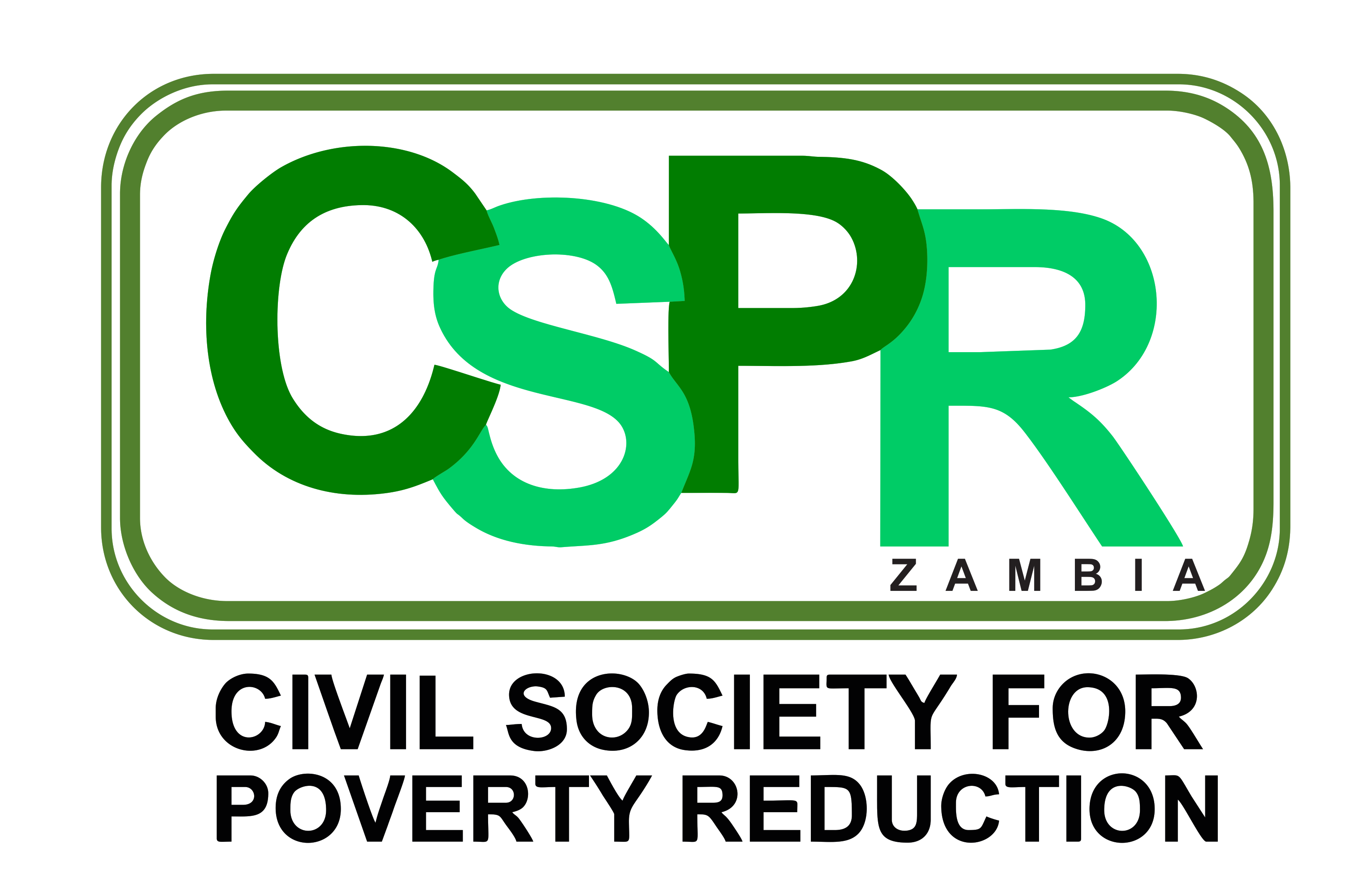
CSPR CONCERNED THAT THE CURRENT POWER SHORTAGE CRISIS LIKELY TO INCREASE POVERTY LEVELS IN ZAMBIA
The Civil Society for Poverty Reduction (CSPR) is deeply concerned with the increased loadshedding hours to 17 hours daily by the Zambia Electricity Supply Corporation (ZESCO) effective September 1, 2024. This decision is anticipated to have far-reaching consequences on poverty levels and the viability of the informal economy across the nation.
Currently, the informal economy is the largest employer in Zambia at about 90 percent as projected by the International Labour Organization (ILO). With the increased loadshedding hours, the local economy will face substantial challenges such as reduced supply to operate machinery, refrigeration,
lighting, and computers. The reduced hours of electricity per day will further increase operational costs as businesses are forced to turn to more expensive alternative power solutions. Furthermore, the reduction in operating hours will lead to decreased productivity, lower revenue and in some
cases, the closure of businesses unable to sustain operations under these conditions.
The uncertainty surrounding the power supply is likely to discourage further investment therefore limiting growth in the local economy, leading to a decline in economic opportunities and job creation. This could result in higher unemployment rates and worsen poverty levels in affected communities.
The Zambia Statistics Agency 2022 Poverty Assessment Report indicates that poverty by
employment in most categories which include wages, self-employed, unemployed and inactive has increased by almost 50 percent from 2015 to 2022. CSPR is concerned that the current energy crisis may worsen the situation for Zambia.
According to the Living Conditions Monitoring Survey (LCMS) 2022 women and youths are among the most vulnerable groups who depend heavily on the informal economy the drastic reduction in power supply has significantly disrupted their daily lives.
The increased reliance on alternative energy sources like generators, charcoal and fuel has raised the cost of living and has resulted in the reduced disposable income, further straining already limited household budgets and potentially pushing more families into poverty.
The cost of climate friendly solutions such as solar panels is largely unaffordable to the average Zambian. This dependence on
generators charcoal and fuel is likely to worsen the climate crisis.
CSPR urges the Government through the Ministry of Energy to invest in other alternative sources of power to reduce dependency on hydropower and create a more sustainable energy infrastructure.
The government should consider providing subsidies and incentives for alternative energy sources in trading spaces such as markets for people to continue conducting businesses.
Further we recommend that the government should expedite the process of reviewing the National Social Protection Policy (NSPP) as it directly responds to the fight against poverty.
The policy provides proactive guidelines to cushion the most vulnerable from falling further into poverty.We call upon the government to collaborate with the private sector to invest in and develop sustainable
energy solutions to the impact of the current crisis and preventing future occurrences.
ISSUED BY
Brian Moyowanyambe (Mr.)
Acting Executive Director
Civil Society for Poverty Reduction (CSPR)
